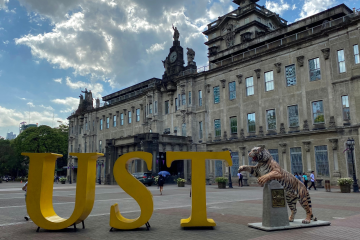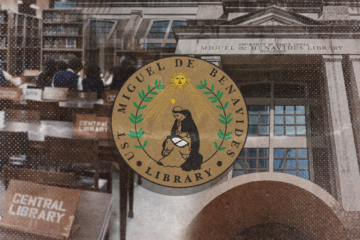
THE UNIVERSITY of Santo Tomas (UST) may still offer new undergraduate programs and raise tuition and other school fees without seeking government approval in the next three years after securing a fresh autonomous status from the Commission on Higher Education (CHED).
The Dominican-run institution was among the 77 private higher education institutions that were pronounced as autonomous and deregulated from Sept. 16, 2024 to Sept. 15, 2027, a CHED memorandum issued last week showed.
It has been carrying the status since 2002.
Autonomous institutions are allowed to offer new programs, determine and prescribe curricular programs to attain “global competence” and are exempted from CHED regular monitoring and evaluation.
They may also increase tuition and other school fees without securing a permit from CHED and are prioritized in the grant of subsidies and other financial incentives or assistance. Their application for new graduate programs will also be prioritized.
Institutions that were given the status are expected to assist in quality assurance development and mentoring programs for non-autonomous and non-deregulated educational institutions.
“We can only be inspired and grateful as well,” a UST statement quoted Rector Fr. Richard Ang, O.P. as saying.
Ang said the University must not just maintain quality and excellence but elevate them to a “higher level.”
“We owe it to all our stakeholders, most especially our students,” the Rector said, adding that members of the Thomasian community “have done very well during the period covering 2019 to 2023.”
According to the statement, Ang expressed hope that the autonomous status would “encourage everyone to continue contributing to the fulfillment of our mission as a Catholic educational institution.”
Vice-Rector for Academic Affairs Cheryl Peralta gave an assurance that UST is continuously exerting efforts to realign approaches and redesign academic programs “so they can effectively respond to the needs of society” and prepare graduates for the “future of work.”
“We need to focus our efforts on strengthening our quality assurance mechanisms at the institutional, unit, and program levels as we improve our existing programs and develop new and innovative programs and services,” Peralta was quoted by the UST statement as saying.
Pandemic impact
Several institutions struggled to achieve the autonomous or deregulated status because of pandemic-induced concerns that affected their performance in some indicators and their submission of evidence.
“As these institutions transition from the pandemic to a state of normalization, these circumstances have been taken into consideration. However, it is crucial for these institutions to achieve exemplary performance with the requirements of the grant for the renewal of their status once the current validity period expires,” CHED said in the memorandum issued last Sept 16.
The granting of the autonomous status was based on the performance and achievements of institutions from July 1, 2019 to Sept. 15, 2023.
Applicants were required to pass government authorization of their programs and institutional quality assurance and present proof of a tradition of integrity and an untarnished reputation. Educational institutions were assessed based on three criteria: commitment to program excellence (30%), excellence in instruction, scholarly works, and community engagement (40%) and institutional quality and excellence (30%).
The first criterion measures the number of programs designated as centers of excellence and centers of development, local program accreditation ratio and number of programs with international accreditation, assessment or certification. Excellence in instruction, meanwhile, covers the board performance, employability and the institution’s graduate rates. Scholarly work excellence pertains to the outputs of full-time faculty and contribution to their field. Excellence in community engagement covers the institution’s links to the local and global community.
The last criterion assesses the quality assurance mechanisms and enhancements of the institution, including institutional accreditation and international ranking from assessors like Quacquarelli-Symonds (QS) and Times Higher Education (THE).
The University has 18 bachelor’s programs certified by AUNQA, 13 centers of excellence, and 13 centers of development. UST programs are also accredited by local agencies like the Philippine Accrediting Association of Colleges and Universities Commission on Accreditation and the Philippine Accrediting Association of Schools, Colleges and Universities.
Other institutions granted autonomous status include De La Salle University, Ateneo de Manila University and Far Eastern University. F – M.L. Weng




[…] READ: Fresh autonomous status allows UST to offer new programs, hike tuition without CHED approval for thr… […]